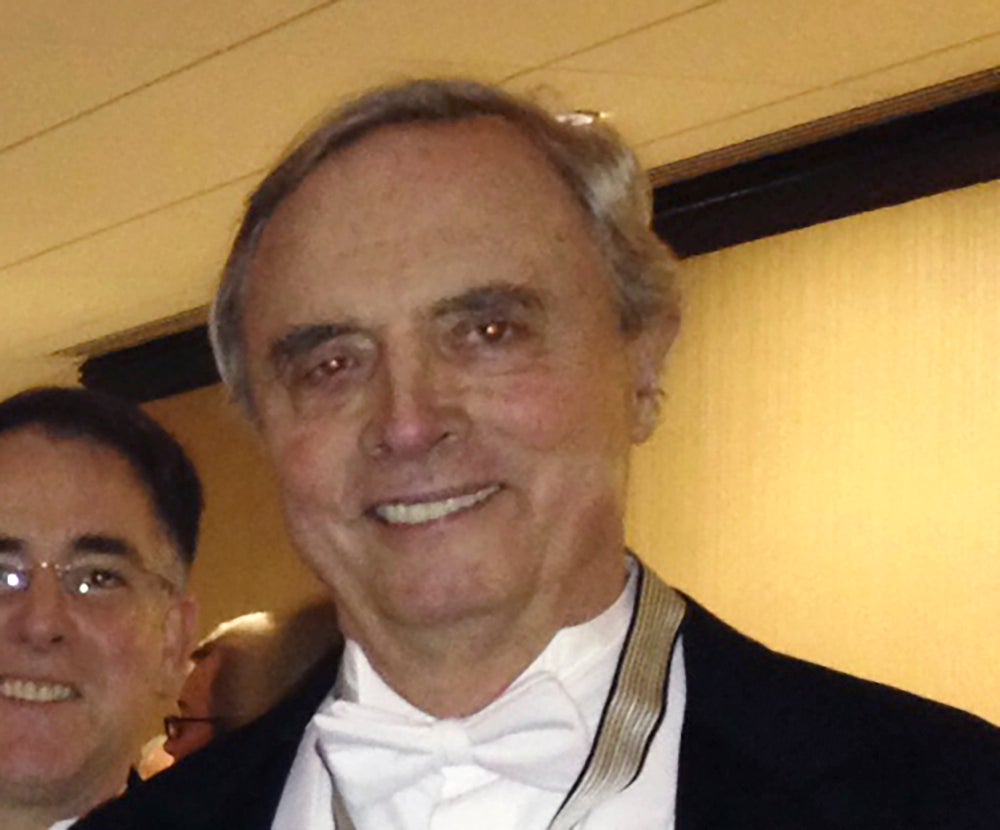Charles Lewis, former DC chief at AP and Hearst, has died
Charles Lewis, a former Washington bureau chief for The Associated Press and The Hearst Newspapers who tirelessly advocated for the release of AP journalist Terry Anderson from kidnappers in Lebanon, died Saturday

Your support helps us to tell the story
From reproductive rights to climate change to Big Tech, The Independent is on the ground when the story is developing. Whether it's investigating the financials of Elon Musk's pro-Trump PAC or producing our latest documentary, 'The A Word', which shines a light on the American women fighting for reproductive rights, we know how important it is to parse out the facts from the messaging.
At such a critical moment in US history, we need reporters on the ground. Your donation allows us to keep sending journalists to speak to both sides of the story.
The Independent is trusted by Americans across the entire political spectrum. And unlike many other quality news outlets, we choose not to lock Americans out of our reporting and analysis with paywalls. We believe quality journalism should be available to everyone, paid for by those who can afford it.
Your support makes all the difference.Charles Lewis, a former Washington bureau chief for The Associated Press and The Hearst Newspapers who tirelessly advocated for the release of AP journalist Terry Anderson from kidnappers in Lebanon died Saturday. He was 80.
Lewis, of Arlington, Virginia died at a hospital from complications from cancer. He had been fighting a series of illnesses the last several years, according to his wife, Vivian Chen.
Open and friendly as a newsman, but tough and by the book in his personnel duties, Lewis was a journalist for four decades. He became known for his dedication to Anderson’s release even when it meant walking a fine line at times.
He had been AP’s bureau chief Washington for a year when Anderson, the news organization’s chief Middle East correspondent, was abducted from the streets of Beirut in 1985 in the midst of the country’s civil war, thrusting Lewis in the middle of often tense and sensitive U.S. efforts to get Anderson released.
As part of an effort to help Anderson and other Western hostages believed to be held in Lebanon, Lewis sought help from the White House which directed him to Lt. Col. Oliver North the White House aide who was the point man on the hostage negotiations.
Lewis campaigned internationally with Anderson’s sister, Peggy Say, with AP support to seek Anderson’s freedom, including several meetings with North.
That stirred complaints from two AP Washington reporters who later said they felt Lewis held them back on their early reporting on North’s shadowy contacts with Nicaraguan contras. Anderson was finally released in 1991.
“It was complicated, because of the arms-for-hostages story,” said Walter Mears on Sunday, who was executive editor of the AP at the time. “He played it the only way he could.”
Lewis later came to acknowledge that his handful of meetings with North as the reports of the aide's clandestine activities became known was ″a pretty hairy experience.″
″I never felt all that comfortable,″ he told The New York Times in 1990, after leaving the AP to become Hearst’s Washington bureau chief. ″I think that the AP will look back on this period as one of great internal frustration. It has been a balancing act, wearing different hats at different times, and I know it lends itself to perception problems. Still, the bottom line is that journalism didn’t suffer one bit.″
Lewis was born in 1940 in Bozeman, Montana, and was a graduate of Loyola University in Chicago and Columbia Law School. In 1974, he had been on leave as an assistant city editor with the Chicago Sun-Times, studying Watergate and the impeachment process in the nation's capital, when his fellowship ended with President Richard Nixon still in office.
“I simply could not go back to Chicago with that issue unresolved,” he said. So he applied to the AP and was hired into the Washington bureau as a desk editor, before becoming a supervisor.
He later served as an assistant chief of bureau in Los Angeles and a bureau chief in Hartford, Connecticut, according to Mears. Lewis was appointed chief of bureau in Washington in 1984 and served in that position until 1989, before returning to AP’s headquarters in New York to specialize in legal issues.
In 1989, he became chief of the Hearst Newspapers bureau in Washington and later served as senior editor there before retiring in 2013.
“He loved the AP and when he left there, it was always his regret,” Chen said Sunday. “He’s still the beautiful man I fell in love with.”
Lewis is survived by Chen, along with his sons and a daughter from a previous marriage — Peter in Madison, Wisconsin, Patrick in Hollywood, California, and Barbara in Falls Church, Virginia — as well as a stepdaughter, Rebecca, in New York, and several grandchildren.